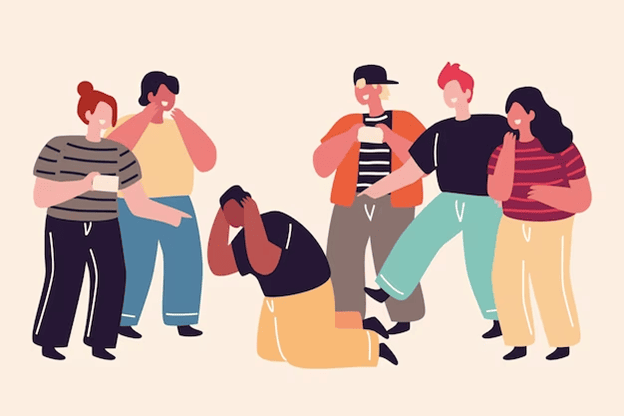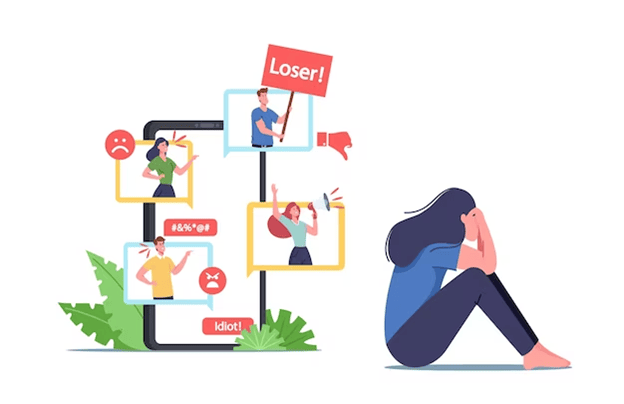the influence that is exerted on a person or group by another person or group. It includes rational argument, persuasion, conformity and demands. See social force; social influence.

Introduction
Social pressure is a vital component of human life, impacting our actions, attitudes, and daily decisions. Its ubiquitous effect governs a vast range of individual and social behaviors, from the trivial to the serious. The force of social pressure is still as powerful in today's society as it was in previous generations, continually shaping societal structures and influencing the course of personal decisions.
Definition
The force exerted by a group or society at large on an individual or another group to comply to specified norms or behaviors is known as social pressure:
- Social pressure is the influence exerted by a group or society on an individual or another group to comply with particular norms or behaviors.
- This pressure can be overt (direct requests or orders) or covert (an implicit expectation to conform).

Background and Context
Historical Perspective
The concept of societal pressure is far from novel. Since the mid-twentieth century, it has occupied a major position in social psychology study.:
- Social pressure has been a central focus of social psychology since the 1950s.
- Groundbreaking studies like the Asch conformity experiments revealed the powerful influence of social pressure on individual behavior.
Current State of Research
The study of social pressure continues today, delving into its complexity and current expressions. Researchers are currently investigating the impact of digital technology and social media on social pressure, as well as the dynamics of peer pressure and the impacts of social pressure on mental health:
- Current research focuses on understanding the role of social pressure in the digital age, including the influence of social media and digital technology.
- Contemporary studies also explore the dynamics of peer pressure and the effects of social pressure on mental health.
- The implications of social pressure in our interconnected digital world are a significant area of modern research.

Importance
Understanding social pressure is critical due to its tremendous influence on human decision-making and its ability to affect societal structures and cultures. Knowing social pressure enables us to understand why people tend to adhere to the majority and how societal norms are maintained:
- Understanding social pressure is crucial as it impacts individual decision-making and significantly influences societal structures and cultures.
- Knowledge of social pressure enables us to understand why individuals conform, how societal norms are maintained, and can help inform interventions to promote beneficial behaviors.
Key Concepts and Terminologies
Understanding several fundamental words connected to social pressure is critical in the field of social psychology: conformity, compliance, and obedience:
- Conformity: describes the act of modifying one's behaviors or attitudes to align with those of a group, indicating the powerful influence group dynamics can have on an individual
- Compliance: the act of changing one's behavior in response to a direct request, highlighting the impact of personal interactions
- Obedience: the act of following orders or instructions from an authority figure, underscoring the role of hierarchical structures in shaping behaviors

Practical Applications and Implications
Understanding social pressure is not only crucial for academia but also has practical applications. Some sectors can leverage insights about group influence to craft strategies that promote positive behaviors or decisions, contributing to societal well-being:
- Awareness of social pressure: help individuals resist inappropriate influence and make more autonomous decisions.
- Knowledge of social pressure: practical applications in fields like marketing, politics, and public health, where insights on group influence can promote positive behaviors or decisions.
Overall, social pressure has been used strategically in public health campaigns, where peer influence is harnessed to promote positive behaviors such as smoking cessation or regular exercise. Understanding social pressure can also assist in developing strategies to resist harmful influence, such as bullying or unhealthy diet trends.

FAQ: Frequently Asked Questions
What is social pressure, and why is it important?
Social pressure is the influence exerted by a group on an individual to conform to certain norms or behaviors. It's important because it affects individual decision-making and societal structures.
How do psychologists conduct research and gather data on social pressure?
Psychologists use various research methods, including experiments, surveys, and observational studies, to understand social pressure.
What are the different branches of social pressure?
Social pressure can be categorized into conformity, compliance, and obedience, each with its unique characteristics and implications.
How do psychological theories and concepts of social pressure apply to daily life?
These theories help us understand why people may conform to group norms, comply with requests, or obey authority figures. They can also inform strategies for resisting such pressures.
References
Asch, S. E. (1956). Studies of independence and conformity: I. A minority of one against a unanimous majority. Psychological Monographs: General and Applied, 70(9), 1–70. DOI: 10.1037/h0093718
Burger, J. M. (2009). Replicating Milgram: Would people still obey today? American Psychologist, 64(1), 1–11. DOI: 10.1037/a0010932
Christakis, N. A., & Fowler, J. H. (2008). The collective dynamics of smoking in a large social network. The New England journal of medicine, 358(21), 2249–2258. DOI: 10.1056/NEJMsa0706154












